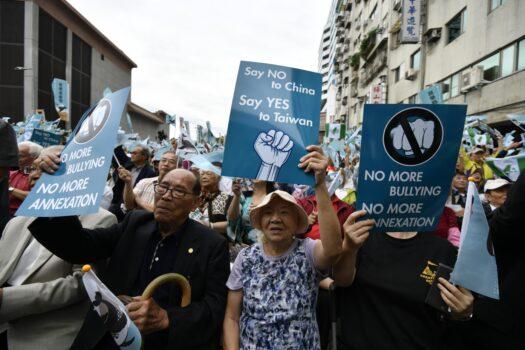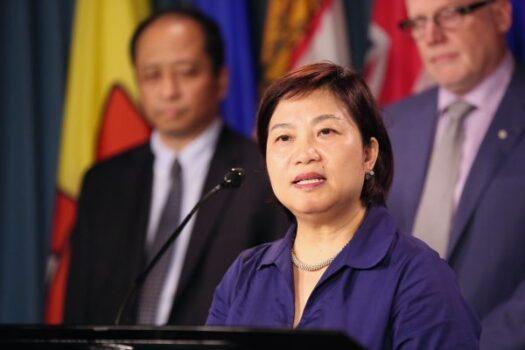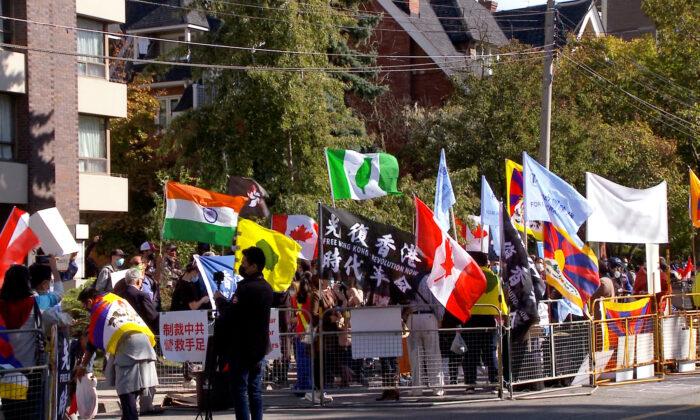From identifying “enemies” and monitoring dissidents to manipulating local organizations, Beijing is using every means in its toolbox to silence those in overseas Chinese communities, including in Canada, it views as a threat, according to a government report.
The report showed that China is actively engaged in a “systematic campaign of intelligence-gathering, persuasion, influence, and manipulation” against dissident voices through its Overseas Chinese Affairs Office (OCAO).
The OCAO, which the Chinese regime claims “protect[s] the legitimate rights and interests of overseas Chinese,” was tasked with “influencing or manipulating” community members and using “coercive tactics” against those who challenged the regime, according to the report.
“The managing of their behaviour is accomplished through incentive or disincentive, as well as intelligence-gathering, surveillance, and subversion against OC communities.”

According to Global News, the report was disclosed during a recent court case involving former OCAO employee Yong Zhang and his spouse Yuxia Gao, who were both denied permanent residency in Canada when their appeal was dismissed by the Federal Court on Jan. 19.
“The Officer determined that there were reasonable grounds to believe that OCAO had engaged in acts of espionage that are ‘contrary to Canada’s interests,’” she wrote.
Zhang’s lawyer Jacqueline Bonisteel told Global that her client was never alleged to have engaged in spying for China; he was just a low-level member of an organization Canada accused of espionage.
“He had no personal involvement, he is not a spy,” Bonisteel said.
The judge noted Zhang was a computer technician from 1983 until 2002, at which time he was transferred to an administrative position. She wrote in her ruling that Immigration Canada noted by the time Zhang retired in 2004, he was a “chief staff member.”
The CBSA report shares a similar conclusion with the immigration officer as it makes the case that OCAO “engages in espionage” and “is known to operate in Canada.”
“The OCAO is involved in covert action and coercion against OC communities and other minorities around the world by targeting Chinese dissidents overseas, and engaging in intelligence gathering on OC and their activities,” it said.
“The OCAO works to undermine individuals identified as threats to the CPC (Communist Party of China), and it organizes and monitors ‘overseas Chinese business, student, cultural, media, and political networks.’”
The CBSA report, which quoted from the U.S. government, academic journals, and news accounts, according to Global News, said the Chinese intelligence services were among the “most active” in the world, and were “becoming more aggressive.”
“Although estimates on the number of spies vary, it has been reported that ‘China can rightly claim to have the world’s largest, most amorphous, but also most active intelligence sector … as any Chinese, especially those from China, from student to CEO, are potential active intelligence assets,’” it said.
“The threat and infiltration of the CCP has formed a networked mode of action in democratic countries. As long as there are incidents that are not conducive to the CCP, the organizations and personnel assigned by the CCP in these countries will take immediate measures,” she said in a previous interview with The Epoch Times.

She cited the example of former Conservative MP Kenny Chiu who lost his seat in the B.C. riding of Steveston–Richmond East in the 2021 federal election.
“They have also interfered with the democratic integrity of the country in the recent federal election by spreading fake news about Kenny Chiu’s Bill C-282, saying that it will lead to discrimination or racism towards the Chinese Canadians,” Fung said in a previous interview.
The CBSA report says Beijing will stop at nothing to eliminate “rival discourse or potential threats” to its existence.
“The OCAO is focused on the elimination of threats to the regime and it seeks to undermine those threats in the countries in which it operates,” it said.





